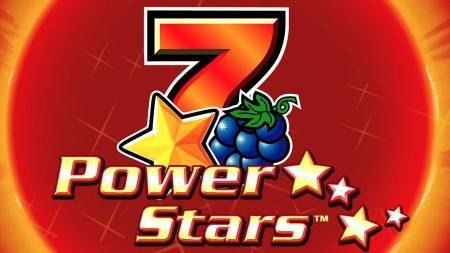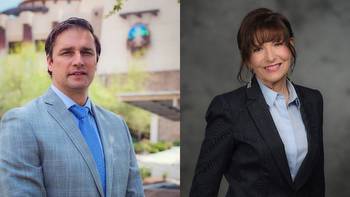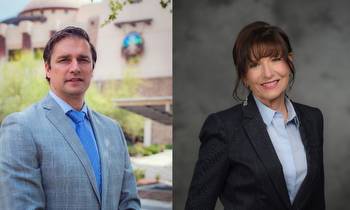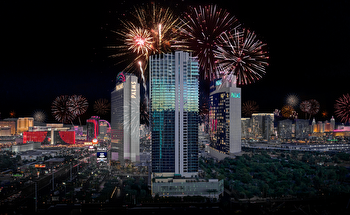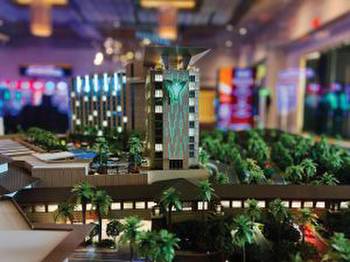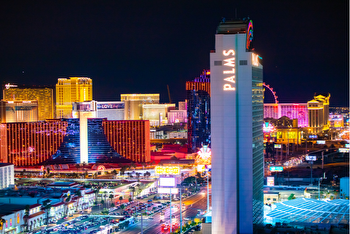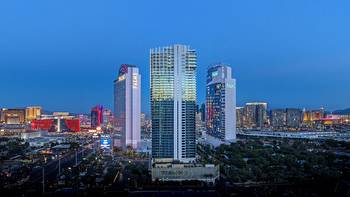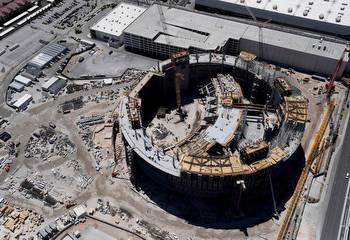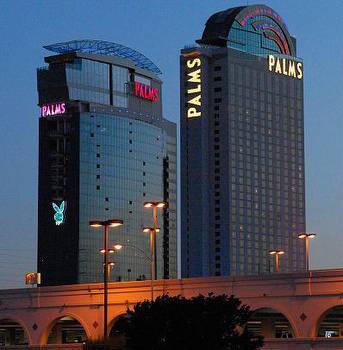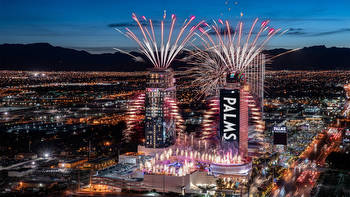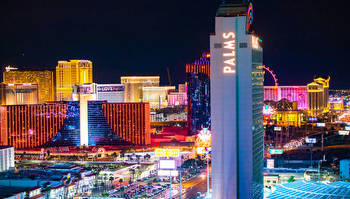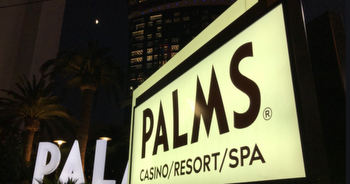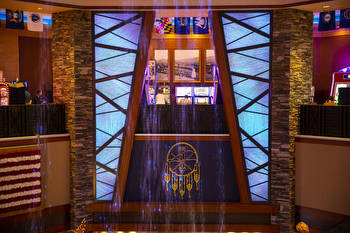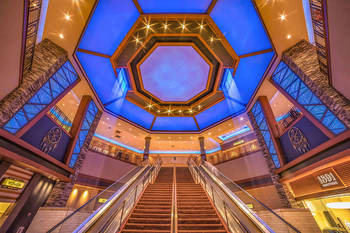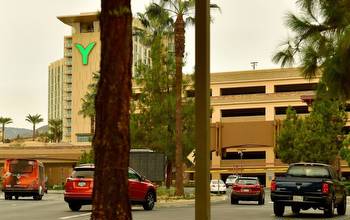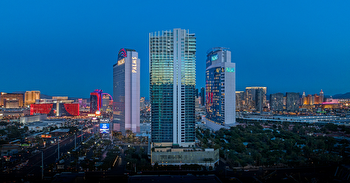San Manuel Band of Mission Indians plans to acquire the Palms in Las Vegas for $650 million

The San Manuel Band of Mission Indians has announced plans to purchase the Palms Casino Resort in Las Vegas, making it the first tribe to own and operate a casino in the city’s resort corridor.
The tribe, which already owns and operates San Manuel Casino in Highland, and the San Manuel Gaming and Hospitality Authority, a newly created entity that will run the Las Vegas resort, will acquire the casino property for $650 million, according to a news release from current Palms owner Red Rock Resorts. The transaction is expected to close in 2021, but is subject to regulatory approvals and other closing conditions, according to a news release from San Manuel.
Jacob Coin, executive adviser to San Manuel Tribal Chairman Ken Ramirez, said in a phone interview Tuesday afternoon that the acquisition of the Palms is part of the tribe’s mission of “securing a future for its people” and that the purchase of the resort in Las Vegas gives the tribe another financial avenue to accomplish that goal.
“The tribe has been talking about this kind of growth and diversification that will secure a future for at least two decades and probably longer,” Coin said.
That echoes a national trend among tribes, said Katherine Spilde, a professor at San Diego State University’s L. Robert Payne School of Hospitality and Tourism Management and an expert on casinos. She said diversification has taken different forms such as real estate, logistics centers and agritourism.
The move by the San Manuel Band to purchase the Palms adds a commercial gaming arm and allows the tribe to use the expertise it already has from its operation in Highland, Spilde said.
San Manuel would be the second tribe operating in Las Vegas’ resort corridor. Mohegan Gaming & Entertainment, operated by Connecticut’s Mohegan Tribal Gaming Authority, runs the recently opened casino at Virgin Hotels Las Vegas (formerly the Hard Rock Hotel).
However, San Manuel would be the first tribe to wholly own and operate a property in Las Vegas, said David G. Schwartz, a gaming historian at the University of Nevada, Las Vegas.
“Las Vegas is a market that a lot of gaming operators want to get into and tribal casinos are some of the biggest casinos in the country so I think it’s definitely feasible that many of them would be looking into getting into Vegas,” he said.
As Southern California’s casinos continue to grow and add new amenities, they’ve increasingly tried to capture a segment of audience that would normally vacation in Las Vegas.
Having a casino in Southern California and another four hours away in Las Vegas might actually drive traffic from Nevada into California, Schwartz said.
He said he could see a casino doing something like incentivizing guests to visit between the two casinos through their loyalty program.
Getting to know the locals
Spilde noted that the Palms is a location that not only brings in tourists, but also a lot of locals from the surrounding area who go to grab a meal at a restaurant or take in a movie at the property’s movie theater and then go back home.
“In some ways it makes sense,” she said. “It’s a good a match for San Manuel because they do understand a local market.”
Before the purchase agreement, the San Manuel Band had been making inroads into the Las Vegas market in recent years, including partnerships with the NHL’s Golden Knights, the new Allegiant Stadium and the NFL’s recently relocated Raiders.
In 2020, the San Manuel Band gave UNLV $9 million to support education and innovation around tribal gaming operations and law at the university, the largest amount the tribe has given to an out-of-state university, according to a news release from UNLV.
The Palms, an off-strip property on West Flamingo Road, was built by the Maloof family and opened in 2001. It ran into financial trouble during the Great Recession and was later acquired by Station Casinos — part of the larger Red Rock Resorts — in 2016 in a deal valued at nearly $313 million, according to the Las Vegas Review-Journal.
The property shut down during the novel coronavirus pandemic, but when it was open it boasted a hotel; a gaming floor with 1,500 slots; a sports book; bars, lounges and restaurants (including one on the rooftop), and boutique shops. It was also the filming location for a season of the MTV reality show “The Real World.”
Station Casinos has faced financial struggles recently. Following reports of declining revenue, Frank Fertitta III, CEO of Red Rock Resorts, said in an August earnings call that it was unclear whether a list of several casinos that included the Palms would reopen in the wake of COVID-19, according to the Reno Gazette Journal.
The casino was still listed as closed and not taking any reservations in a spot check of its website Tuesday, May 4.
Its future owners hope to have the resort reopened by the end of the year, said San Manuel Band of Mission Indians CEO Laurens Vosloo in an emailed statement.
However, how the Palms Casino Resort might change under the tribe’s ownership remains to be seen.
Vosloo said that for now the tribe plans to keep the property’s name the same, “but the reality is that there is a lot we have not figured out yet.” He said the San Manuel Band has to get through the licensing and regulatory requirements first.
Coin said that decisions about physical upgrades and changes to the property would be planned out and overseen by the San Manuel Gaming and Hospitality Authority.
As the San Manuel tribe works to expand its casino empire in another state, it has been expanding its casino property in Highland as part of a $550 million, three-phase project. The first phase is expected to open in July and will include an expanded gaming floor, a 24-hour restaurant, three shops, and a high limit room. That will be followed by the opening of 17-story hotel, pool and spa before the end of 2021 before a 2,800-seat event center opens in early 2022.







